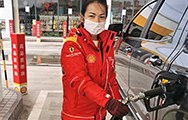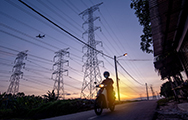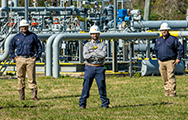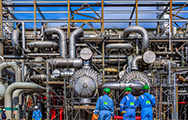Shell's response to COVID-19
Special report
In 2020, the COVID-19 pandemic had a serious impact on people’s health and livelihoods around the world. Sadly, it led to the deaths of 20 Shell colleagues, including two contractors who lost their lives after they caught the virus during the course of their work for Shell.
We worked to assist in the global fight against the virus and to support recovery efforts. We took steps to protect our staff and customers and to support communities where we operate. At the same time, Shell people worked hard to keep energy supplies flowing. Our refuelling stations helped to keep emergency and delivery services on the roads.
Protecting colleagues
In January 2020, we brought together a global health alert monitoring team, made up of medical specialists across Shell, to equip staff and businesses with guidance to remain operational in a responsible way. We updated our guidance materials throughout the year and shared information with the International Association of Oil & Gas Producers so it could be used by others in the industry.
We moved quickly in the first few months of the year to protect the health of our staff, including requiring or encouraging office-based staff to work from home, depending on the advice of local authorities. From March 2020 until the end of the year, the occupancy of our 18 largest offices fell to around 10%. Our information technology (IT) teams ensured that thousands of people could work from home each day. More than 50,000 staff took a health-based risk assessment as part of our home-working ergonomics programme. This gave them advice and, if necessary, support, to buy office and IT equipment.
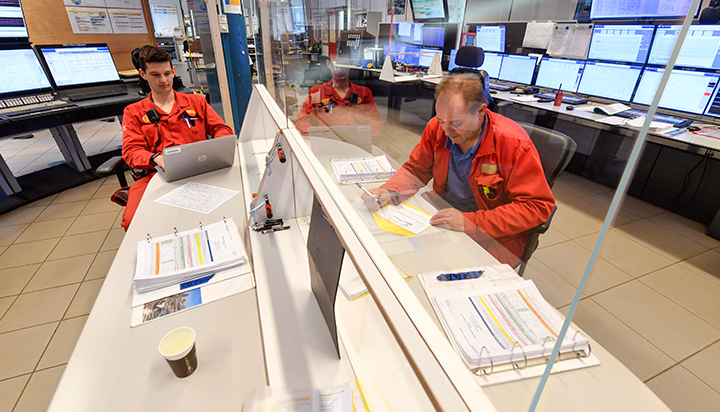
We installed screens to protect staff in the control room of our Moerdijk chemical complex in the Netherlands.
Shell updated business continuity plans and supporting guidance to ensure the safety and health of our key workers at facilities worldwide remained a priority (see Supply chain). These plans included robust cleaning programmes, health screening, social distancing in vehicles and common areas, and providing additional personal protective equipment in accordance with local guidelines. We increased our use of technology, for example, drones for remote monitoring of facilities, as lockdowns caused by the COVID-19 pandemic disrupted the movement of people.
We also strengthened our approach to mental health. We provided resources to address the challenges of remote working and to support staff as Shell prepared for a major organisational restructure. We set up a Care-for-Self programme to encourage staff to pay attention to their physical and mental well-being, and to support them as they did so.
Supporting customers
As the pandemic disrupted the world, Shell people at our forecourts provided the fuel, food and drink to help keep crucial services, such as ambulances, emergency vehicles and deliveries, on the roads. Shell offered free fuel to health-care providers and ambulances in several countries, including Brunei, Bulgaria, Mexico, the Netherlands, Oman, Poland, Russia and Turkey.
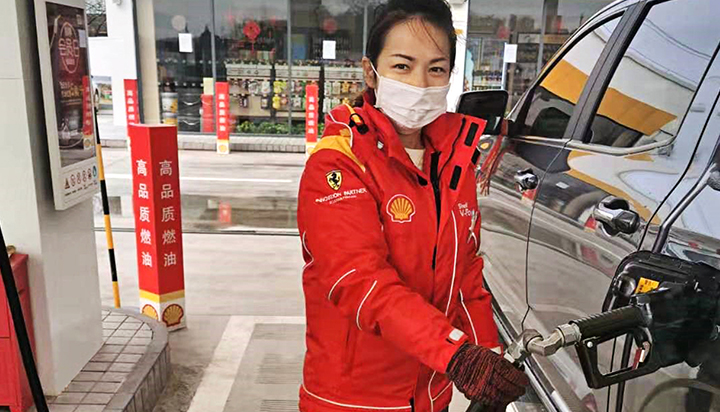
A Shell attendant in China was one of many around the world helping to keep crucial vehicles on the road during the COVID-19 pandemic.
Our people worked with business customers to meet demand for essential hand and surface cleaning products. Manufacturing plants at Pernis in the Netherlands, Sarnia in Canada and Bukom in Singapore produced additional isopropyl alcohol (IPA), which is a key ingredient in hand-sanitising liquids. Shell donated IPA to several countries, including making 2.5 million litres available free of charge to the Dutch health-care sector.
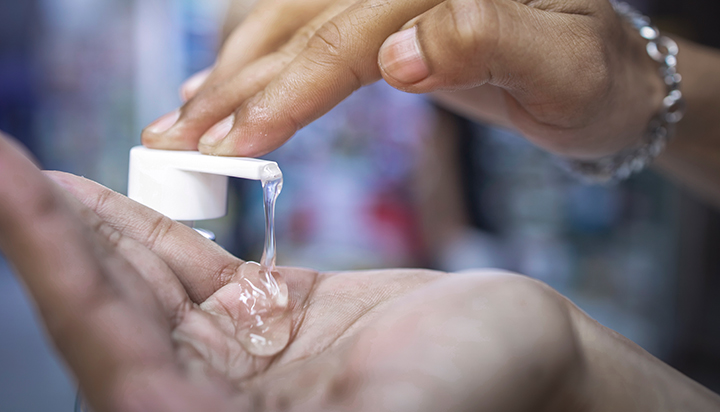
Our refineries produced additional isopropyl alcohol, which is a key ingredient in hand-sanitising liquids.
Helping communities
Shell supported efforts by communities to halt the spread of the virus and to help people recover. This included a number of in-kind and monetary donations to help vulnerable groups and front-line workers. For example, Shell donated $3 million to the COVID-19 Resilience Fund run by Mercy Corps (see Social partners).
Our response also included collaborating with hospitals, universities and health specialists to provide 3D-printed parts to increase the availability of protective masks and ventilators.
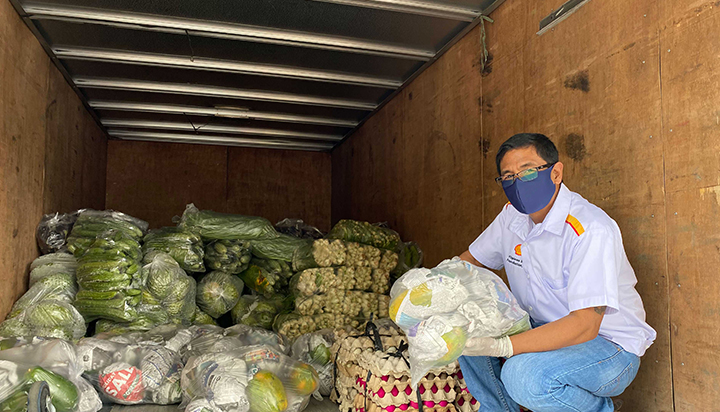
Produce was delivered to key workers in the Philippines as part of our efforts to support local communities.
We granted $1.7 million to six companies providing electricity in India, Kenya, Nigeria, Sierra Leone, Tanzania, and Uganda to support customers in financial difficulty because of the pandemic. In 2020, these grants helped around 800,000 people (see Access to energy and read more about Shell’s contributions around the world at www.shell.com/covid19).
We also donated $10 million to COVAX, a global programme working for equitable access to COVID-19 vaccines. The programme is led by the Global Alliance for Vaccines and Immunization, the World Health Organization and the Coalition for Epidemic Preparedness Innovations.
In all this, Shell people working on COVID-19 relief initiatives carried out donations according to Shell’s ethics and compliance standards (see Business ethics and transparency).
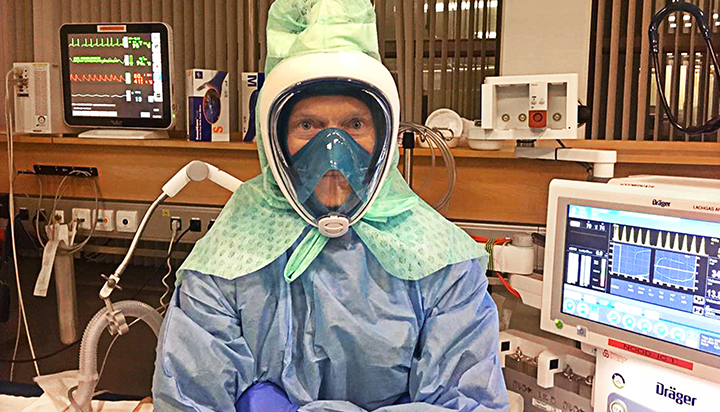
Parts made with 3D printers have increased the availability of protective masks for medical staff and ventilators for patients on COVID-19 hospital wards in the Netherlands.
Read more about Shell’s global response to COVID-19 on www.shell.com/covid19/covid-19-shells-global-response
